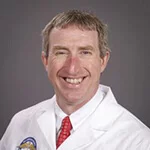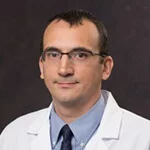What is ERCP (Endoscopic Retrograde Cholangiopancreatography)?
ERCP is a specialized technique used to study the ducts (drainage routes) of the gallbladder, pancreas and liver. An endoscope (flexible thin tube that allows the physician to see inside the bowel) is passed through the mouth, esophagus and stomach into the duodenum. After the opening to ducts from the liver and pancreas is identified, a catheter is passed through the endoscope into the ducts. Contrast material is then injected gently into the ducts and x-ray films are taken.
What preparation is required?
It is necessary to have a completely empty stomach for the best possible examination. You will therefore be asked to fast prior to the procedure. An allergy to iodine or seafood is not a contraindication to ERCP, but it should be discussed with your physician prior to the procedure. The physician performing the procedure should be informed of any medications that you take regularly, any heart or lung conditions (or any other major diseases), and whether you have any drug allergies.
You will be sedated, therefore you will need to arrange to have someone accompany you to the facility, be available at the facility and drive you home after the procedure. Because sedatives temporarily affect your judgment and reflexes, you will not be allowed to drive or operate heavy equipment for the remainder of the day.
What can be expected during ERCP?
Your physician will discuss why ERCP is being performed, potential complications of ERCP, and alternative diagnostic or therapeutic tests that are available. A local anesthetic may be applied to your throat and an intravenous sedative will be given to make you more comfortable during the test. Some patients also receive antibiotics before the procedure. The test begins with the patient lying on his left side on an x-ray table. The endoscope is passed through the mouth, esophagus, and stomach into the duodenum. The instrument does not interfere with breathing. Air is introduced through the instrument and may cause temporary bloating during and after the procedure. The injection of contrast material into the ducts rarely causes discomfort.
What are possible complications of ERCP?
ERCP is generally a well-tolerated procedure when performed by physicians who have had special training and experience in this technique. Localized irritation of the vein into which medications were given may cause a tender lump that may last several weeks. The application of heat packs or hot moist towels to the area may ease the discomfort.
Major complications requiring hospitalization can occur but are uncommon during diagnostic ERCP. They include serious pancreatitis and even more rarely infections, bowel perforation, or bleeding. Another potential risk of ERCP is an adverse reaction to the sedative used. The risks of the procedure varies with the indications for the test, what is found during the procedure, what therapeutic intervention is undertaken, and the presence of other major medical problems (heart or lung diseases). Your physician will discuss potential complications before you undergo the test.
If therapeutic ERCP is performed (cutting an opening in the bile, stone removal, dilation of a stricture, stent or drain replacement) the possibility of complications is higher than with diagnostic ERCP. Complications include pancreatitis, bleeding, and bowel perforation. These risks must be balanced against the potential benefits of the procedure and the risks of alternative surgical treatment of the condition. Often these complications can be managed without surgery, but occasionally they do require corrective surgery.













